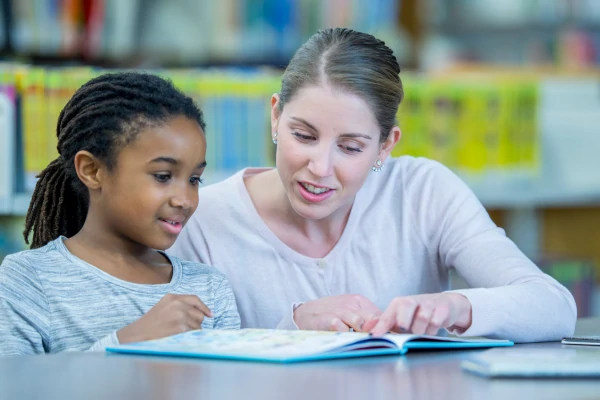With some children already showing strong literacy skills while others are just beginning to develop basic phonological awareness, differentiating instruction can feel overwhelming in an early childhood classroom.
By providing a range of teaching strategies and resources, educators can support every child, regardless of their starting point. This personalised approach helps to build confidence, fosters a love of learning, and ensures that all children can thrive in their literacy journey.
Learn to Read with Cami resources are easily adaptable making differentiation more manageable and reducing teacher prep time with all components ready to use and fully integrated with each other.





By engaging the entire class with interactive activities, songs, and games, children become more confident in recognising letter-sound relationships and practicing phonological awareness skills. Consistent, playful exposure in a group setting fosters a love for language and ensures that all students, regardless of ability, are included in the learning process.
Cami and the Lost Letters is an interactive picture book filled with potential learning experiences and perfect for engaging a whole class. By pausing on the pages, many skills can be developed and consolidated through teacher questioning, repetition and opportunities for practise.
Small group phonological awareness and phonics lessons provide a personalised approach to literacy instruction. In these settings, teachers can easily differentiate learning, catering to the specific needs of each child. Groups are often organised based on skill level, allowing children to work at their own pace while receiving more focused attention. Cami’s Reading Adventure can be used to reinforce phoneme-grapheme correspondence and practise phonological awareness skills. The smaller group dynamic also fosters peer interaction, helping children learn from one another and develop essential social skills while enhancing their literacy. With three ways to play, Cami’s Reading Adventure simplifies the process of differentiation and presents an opportunity for students of different abilities to play together, whilst working on their own targeted skill.
One-to-one intervention is an invaluable strategy for children who may need additional support in developing their literacy skills. This approach allows educators to tailor lessons specifically to the child’s unique needs, ensuring targeted intervention. With individual attention, students can progress at their own pace, focusing on areas of difficulty. Through frequent repetition, timely feedback, and personalised resources, teachers can monitor progress closely and provide the necessary scaffolding.
This type of intervention is especially beneficial for children who are at risk of falling below grade expectation. Learn Letters and Sounds with Cami and Cami’s Reading Adventure can be used to facilitate many learning experiences so that activities are play-based and varied, allowing for skill development and consolidation. The card sets can be used in isolation or with other card sets to create many learning experiences so that activities are play-based and varied, rather than repetitive and cumbersome.

Educators may choose to use the quick, parent assessment to determine which learning experiences are most suitable for each child. Alternatively, a more comprehensive assessment may be found in the downloadable resources tab of the resource bank. Once a colour level has been determined, additional learning experiences can be found under the phonological awareness and alphabetic knowledge tabs.